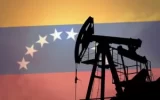Iran sanctions waiting for Venezuela?

According to the exclusive report of Energy Press; In the recent presidential elections of Venezuela, Nicolás Madero won with 51 percent of the votes, which was accompanied by the opposition of rival groups and street protests. Recently, the Minister of Foreign Affairs, Blinken, claimed without providing any documentation that the “National Electoral Council” of Venezuela declared Maduro the winner of the election without the necessary evidence. Previously, during Trump’s presidency, the United States started an attempt to launch a coup in Venezuela by claiming the victory of Maduro’s rival, which led to failure. This has raised questions about the impact of these events on the oil market and the response of the United States.
After years of sanctions on the country’s oil industry, President Biden gave Maduro a chance to retool to help Venezuela’s state oil company, PDVSA, increase production. Holding a free and fair election would allow President Biden to lift sanctions and increase global supply. On the other hand, to reduce US sanctions on Venezuela’s oil sector, Biden called for free and democratic elections.
Therefore, US-Venezuela relations showed signs of warming. In November 2022, to help offset rising global energy prices due to the war in Ukraine, the United States allowed American oil giant Chevron to resume limited operations in the country. Instead, Maduro’s government and the opposition agreed to resume talks after a year-long deadlock. The following October, Caracas agreed to a roadmap for free and fair presidential elections in 2024.
It should be noted that since 2022, the Biden administration has introduced more than half of the strategic oil reserves to the market to keep the price of oil somewhat stable. Before this election, Biden loosened some of the sanctions on PDVSA, and the United States started buying Venezuelan crude oil again at the beginning of 2023, promising to hold elections, to increase crude oil imports from Venezuela to 209,000 barrels per day last April. . Venezuela has actually been very successful in increasing oil production, and PDVSA is on track to increase production to one million barrels by the end of the year. It should be noted that the US sanctions led to a reduction in PDVSA’s production to nearly 300,000 barrels per day in 2020.
US oil demand
Global oil markets are closely monitoring the results and events related to the recent presidential elections in Venezuela, in which Nicolás Maduro was re-elected for a third term, because it has a serious impact on the investment process in the country’s oil and gas sector. Preparations for Venezuela’s elections began last year (2023) and the US President Joe Biden’s administration considered exceptions for foreign companies to invest and increase production there. Of course, the entry of foreign companies is conditional on the government of Venezuelan President Nicolás Maduro allowing free elections to be held in the country.
When the Americans met with Maduro’s representatives, they asked them to allow the opposition to participate in free elections, while Maduro was fully aware that America’s intention was to remove him and bring the opposition to power. Therefore, from the very beginning, there was no trust between the two sides, and this makes the entry of investors and Venezuelan oil production face uncertain futures. Biden no doubt does not want prices to rise in the oil markets, as that would increase pressure on some refineries in the United States that need Venezuelan oil.
Tags:Venezuela
- Comments sent by you will be published after approval by site administrators.
- Comments that contain slander will not be published.
- Comments that are not in Persian or not related to the news will not be published.

Comments
Total comments : 0 Awaiting review : 0 Date: 0